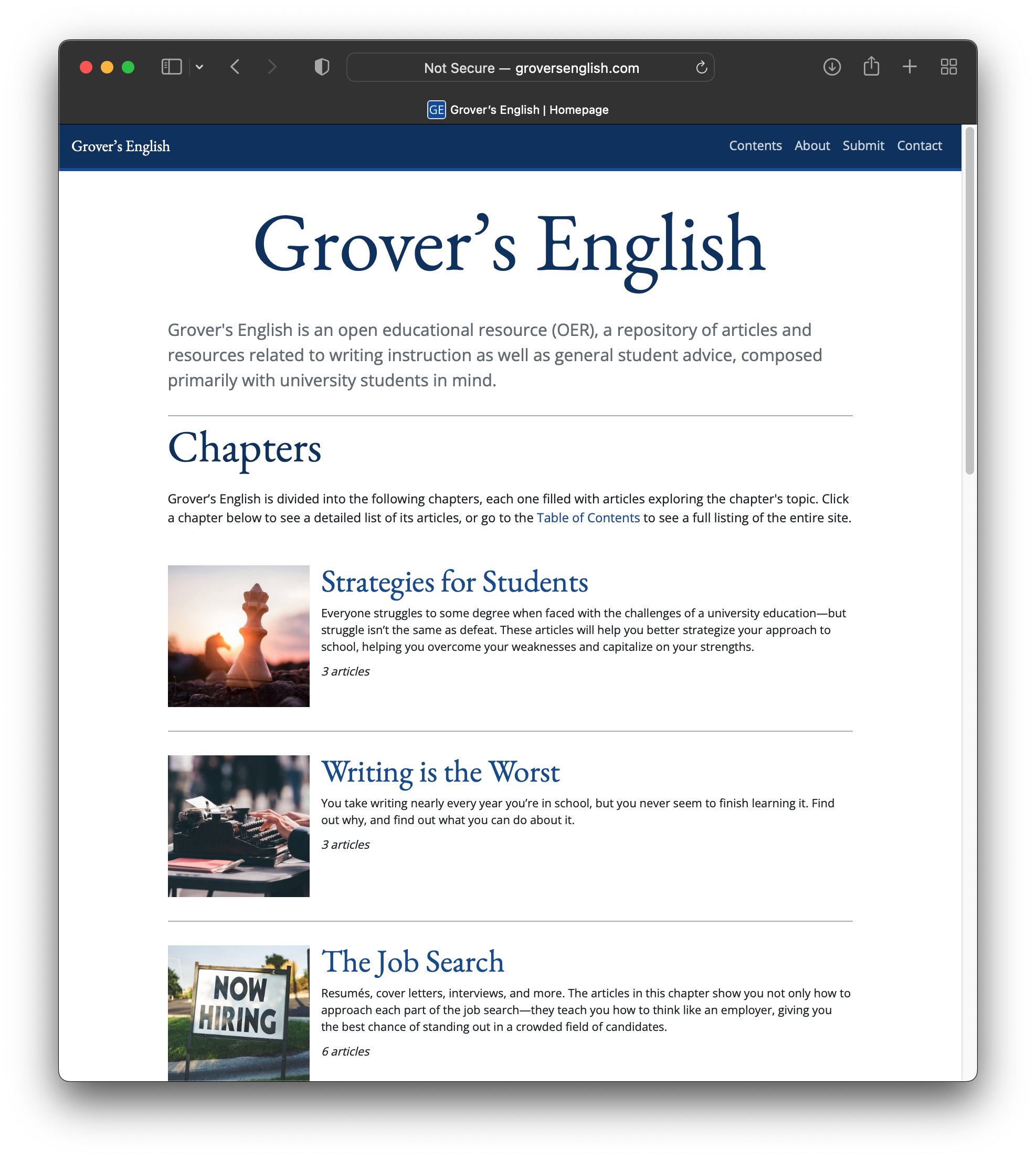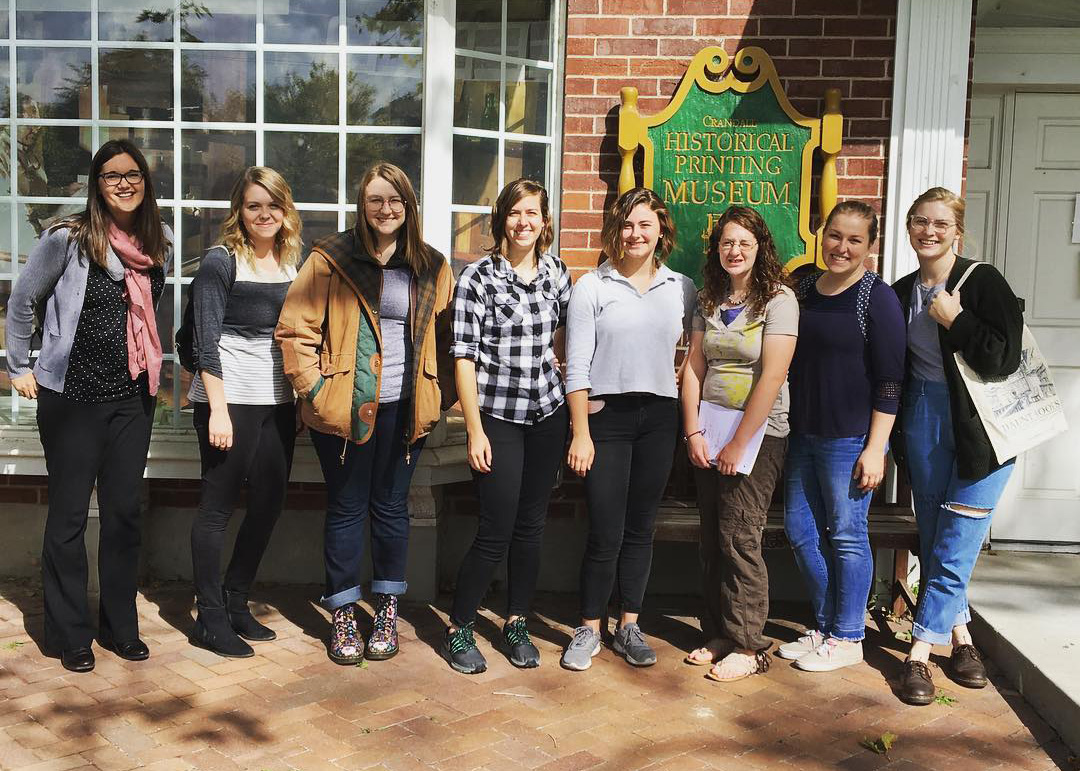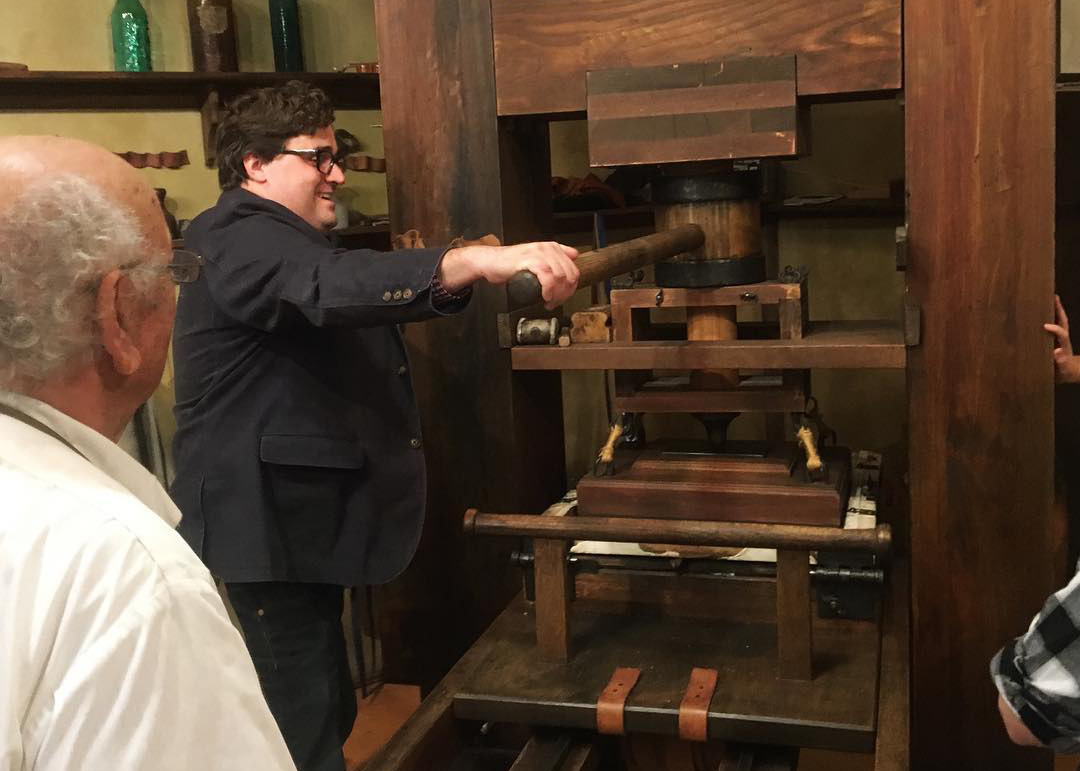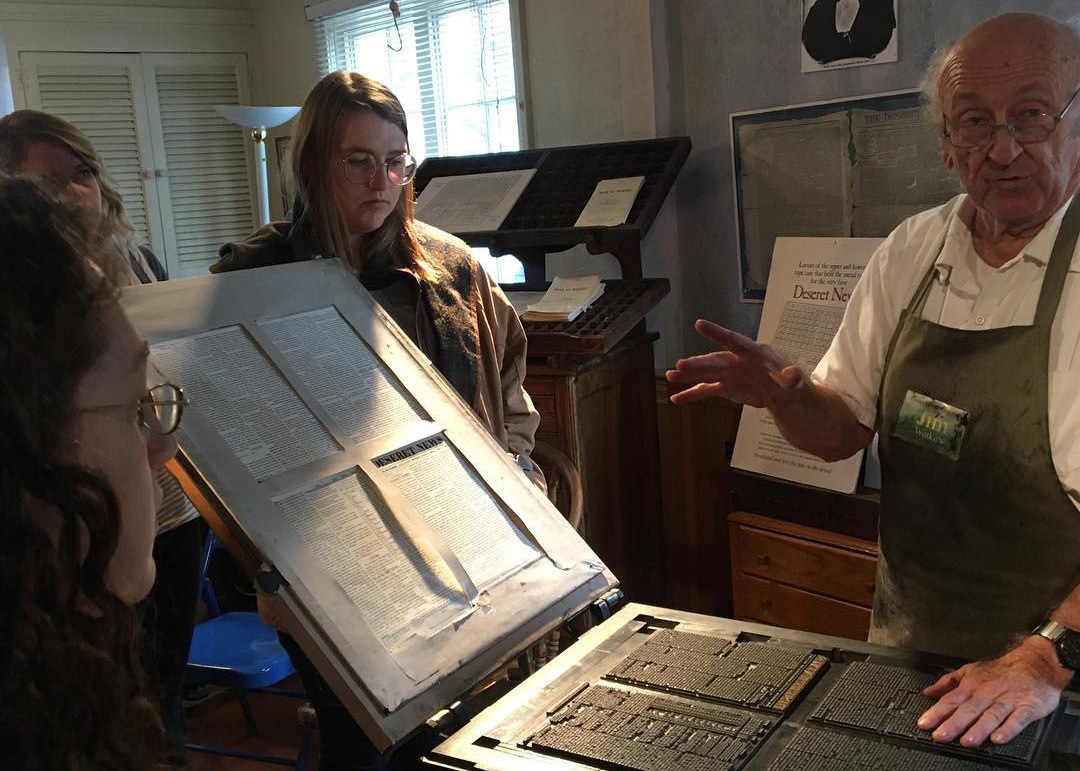
Unsplash
Teaching
Teaching was my original draw into academia. When the light finally came on for me about how to distinguish good writing from bad and the anxiety I had felt about writing subsequently evaporated, I wanted to share that knowledge with others, helping them escape their own reservations about writing.
I've pursued that goal now for over 15 years, and my love for teaching, in all its forms, has only grown over that time. Check out my teaching philosophy and my statement on diversity, equity, & inclusion, and learn more about what kind of teacher I am below.
Use the following links to skip to any section.
Courses I Teach
As an English scholar with disciplinary expertise in technical communication, composition, rhetoric, and creative writing, I'm capable of teaching a wide variety of courses.
I've developed and delivered courses in all modalities and formats, including face-to-face, hybrid, blended, asynchronous online, and accelerated.
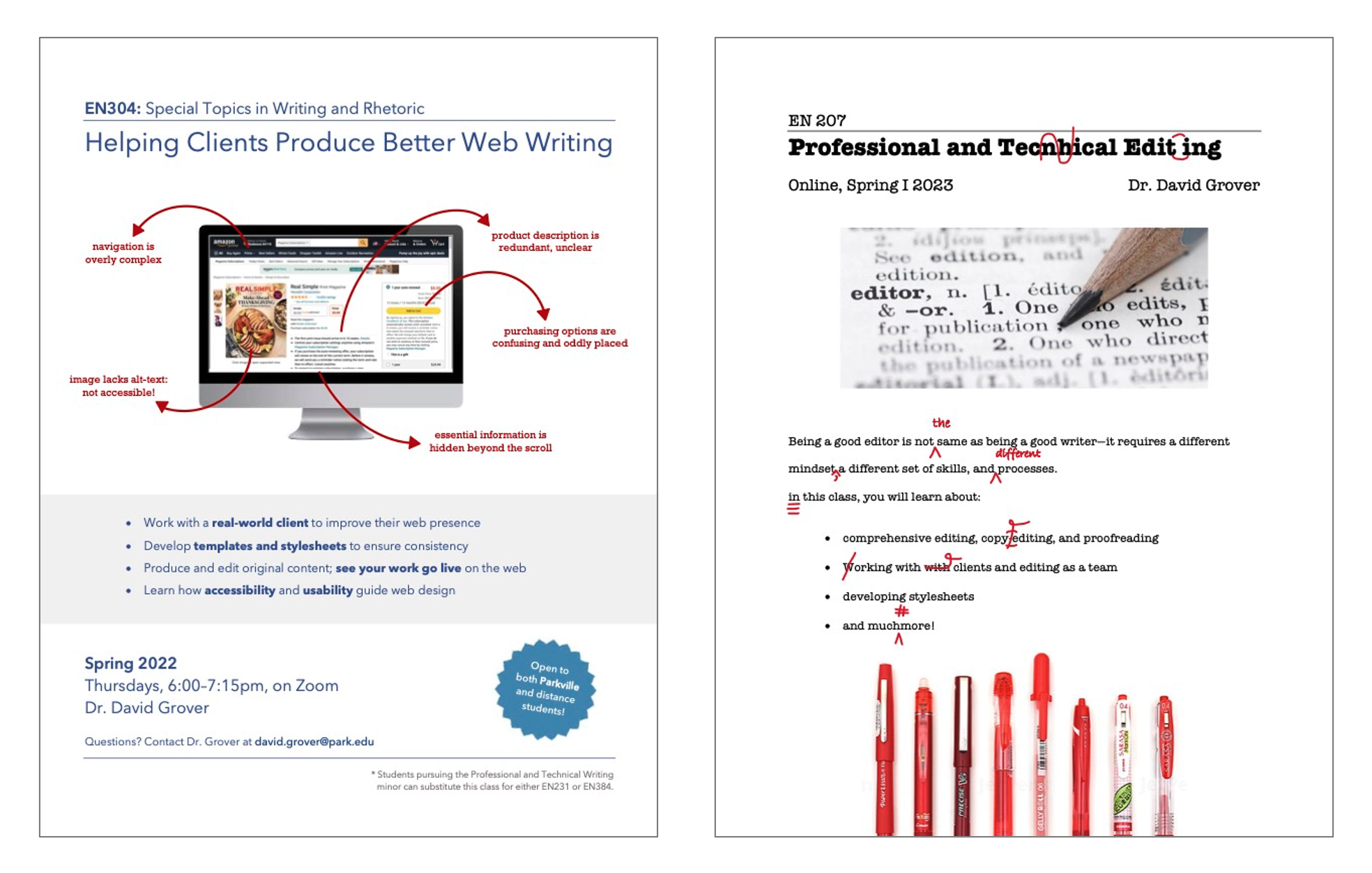
Flyers for some of my recent courses
In my current position at Park, I teach over a dozen different courses in support of multiple programs:
Liberal (General) Education
| English 105 | Critical Reading, Writing, and Thinking Across Contexts |
|---|---|
| English 106 | Academic Research and Writing |
| Lib Ed 100 | First-Year Seminar |
Professional and Technical Writing
| English 204 | Writing for Online Environments |
|---|---|
| English 207 | Professional and Technical Editing |
| English 304 | Special Topics in Writing and Rhetoric |
| English 306A | Scientific and Technical Writing |
| English 306B | Business Communications |
English Major
| English 205 | Introduction to English Studies |
|---|---|
| English 307 | Professional Writing in English Studies |
| English 384 | Professional Experience in English |
| English 485 | Senior Portfolio |
| English 490 | Capstone Seminar |
As opportunities allow, I intend to develop and teach courses in the following topics:
- grant writing
- web accessibility and usability
- advanced writing for the web
- advanced technical editing
- instructional design
- content strategy
- document design
- grammar and style
- research methods
- PTW pedagogy
- creative nonfiction
Pedagogical Methods
I value transparent and fair grading, low-stakes assessment, accessible classroom practices, and student buy-in on course objectives. Here are some of the pedagogical methods I use in my courses to achieve those things.
Click any of the following to learn more.
In many of my writing-intensive courses, I use a specifications grading. Similar to contract grading, specifications grading brings transparency to the grading process while acknowledging its subjectivity and accommodating anti-racist pedagogy. It rewards students for the effort they put into learning while also holding them accountable for achieving a course’s learning outcomes.
Here's how I employ it. Instead of final grades in a course being based on points or a mathematical average, students are presented with a set of specifications at the beginning of the semester that detail the conditions students must satisfy to earn the grade they desire in the course.
For example, here are the specifications given in the syllabus for my EN306B: Business Communications course (Note: students can revise and resubmit any of their major projects for a new grade throughout the semester):
| Grade Received | Conditions |
|---|---|
| A |
Complete ALL of the following:
|
| B |
Complete ALL of the following:
|
| C |
Complete ALL of the following:
|
| D |
Do EITHER of the following (and none of the F criteria):
|
| F |
Do EITHER of the following:
|
This course satisfies the junior-level writing requirement for a variety of majors, so it attracts students from across the university, many of whom are anxious or even resentful about taking another writing course. When they see how much direct power they have to choose what grade they earn, the tend to buy into the course and its objectives, showing greater engagement and achievement of the learning objectives than they otherwise might.
Here are two anonymous comments from course evaluations:
This is my favorite college class I've taken. It was incredibly relevant; Dr. Grover did a lot to encourage participation, and the grading structure was clearly laid out and gave students a blueprint to succeed.
I think this is the best class I have taken at Park University. I have never had a professor who was against the typical grading system and wanted to see their students grow rather than just getting the assignments done. By having a professor that wants to teach I found that this was the class I most cared about. I wanted to go to class to learn new things.
Whenever possible, I give students the option of having their major writing projects graded in a synchronous face-to-face or online meeting. These meetings are more natural and allow for a two-way conversation about what makes their work successful or ineffective, and students report that they value the experience.

Unsplash
As one student remarked in a course evaluation: “I had no idea what a grading conference was before this semester, but that was probably my favorite part of the class — getting immediate, pointed feedback to help me improve.”
Repeated informal assessments of the impact of conference grading reveals that those students who make use of the opportunity early in the semester tend overwhelmingly to repeat the experience for each subsequent paper. These students also tend to revise and resubmit their work with greater frequency.
As often as possible, I give students the opportunity to choose at least one of their own textbooks.
This is partly a reflection of the simple fact that all students are at different phases of their developments as writers and may need quite different advice to make progress. Similarly, they all have different goals and purposes for their writing, so I want them to be able to empower themselves to reach those goals.
Unsurprisingly, students tend to report getting more out of their chosen textbook than almost any assigned reading from a class — and that's fine with me.
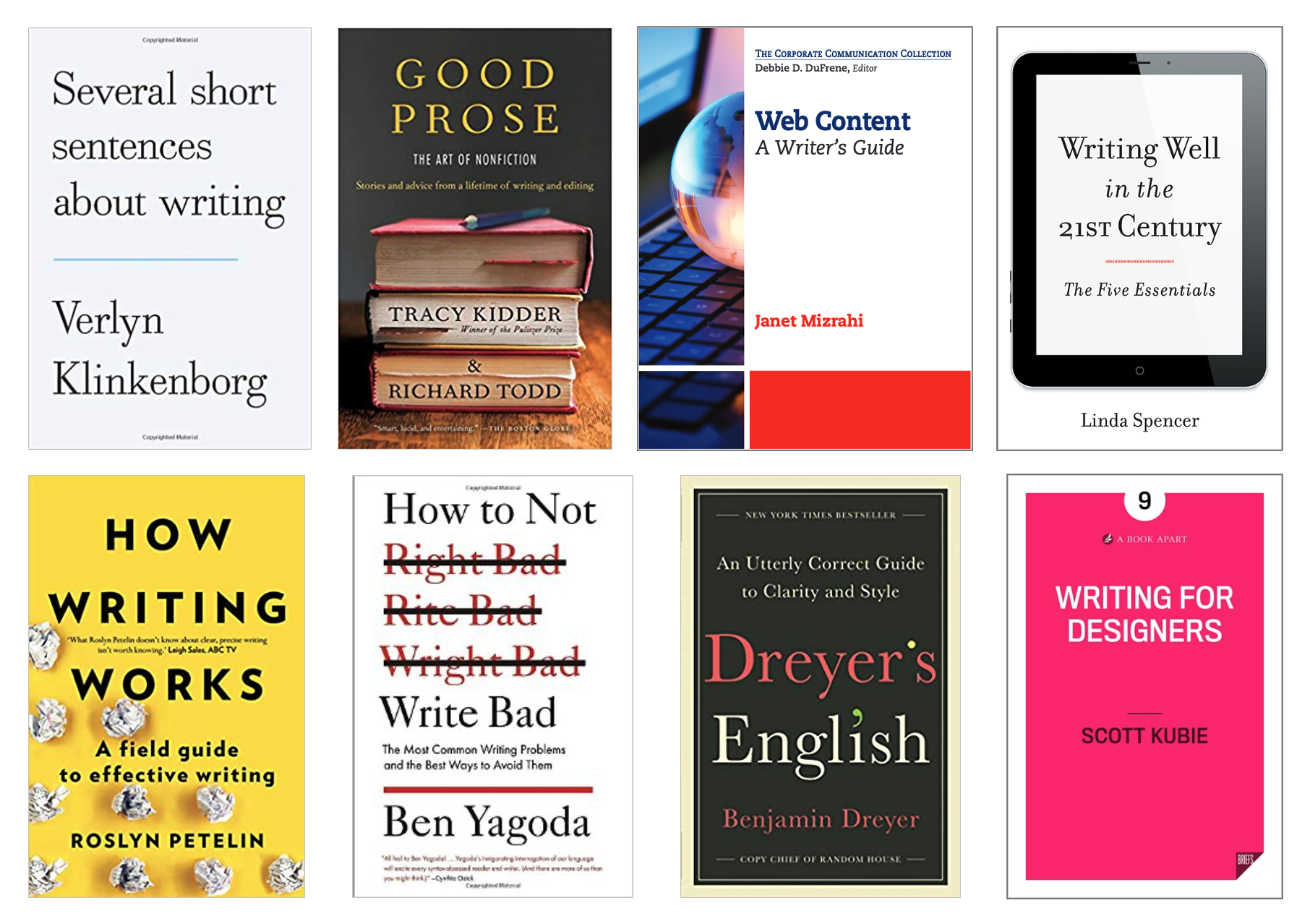
Some of the options I regularly present to students
Occasionally, as in the following example, the choice of writing manual pays off in dramatic ways. One day, a student named Brianna came to my office hours for advice on a job interview she'd soon have. The job was an on-campus position working in instructional design for the university's Pathway initiative, an online college-readiness program for prospective students. She sent me the following a few weeks after the semester ended:
Thank you so much for such a fantastic semester!! I looked forward to your class everyday, it was such a fun way to learn. I also want to say thank you for pushing me in my writing. It definitely payed off, I GOT THE JOB WITH PATHWAY!! I cannot believe I'm going to get paid for my writing, it's such an awesome opportunity.
I honestly owe a lot to the fact you had us read those writing manuals because I was able to pull it out at one of my interviews when I was asked if I was currently reading any books. It impressed my future employers because at the start of our shifts we read from writing manuals! I also totally recommend The Sense of Style to my fellow comm majors and anyone else wanting to better their papers.
Experiential Learning
Professional and technical writing scholars have long emphasized the importance of experiential learning as a key pedagogical tool, so I work hard to provide students with concrete and real-world learning experiences as often as possible. Here are some of the things I've done in recent courses.
Click any of the following to learn more.
In EN207: Professional and Technical Editing, students engage in a weekly "Collaborative Edit" assignment that mimics the way that editorial teams work together. It also provides students an opportunity to develop their editorial styles not only by editing but by discussing, comparing, and (at times) defending their editorial decisions.
Students are divided into teams and are assigned a text to edit together in Google Docs. For Round 1 of the assignment, each student edits their own assigned section of the document, thereby practicing the concepts learned in class and in the readings. In Round 2, they respond to and improve each other’s edits, thereby contributing to the social construction of knowledge and helping to create a classroom community many come to value.
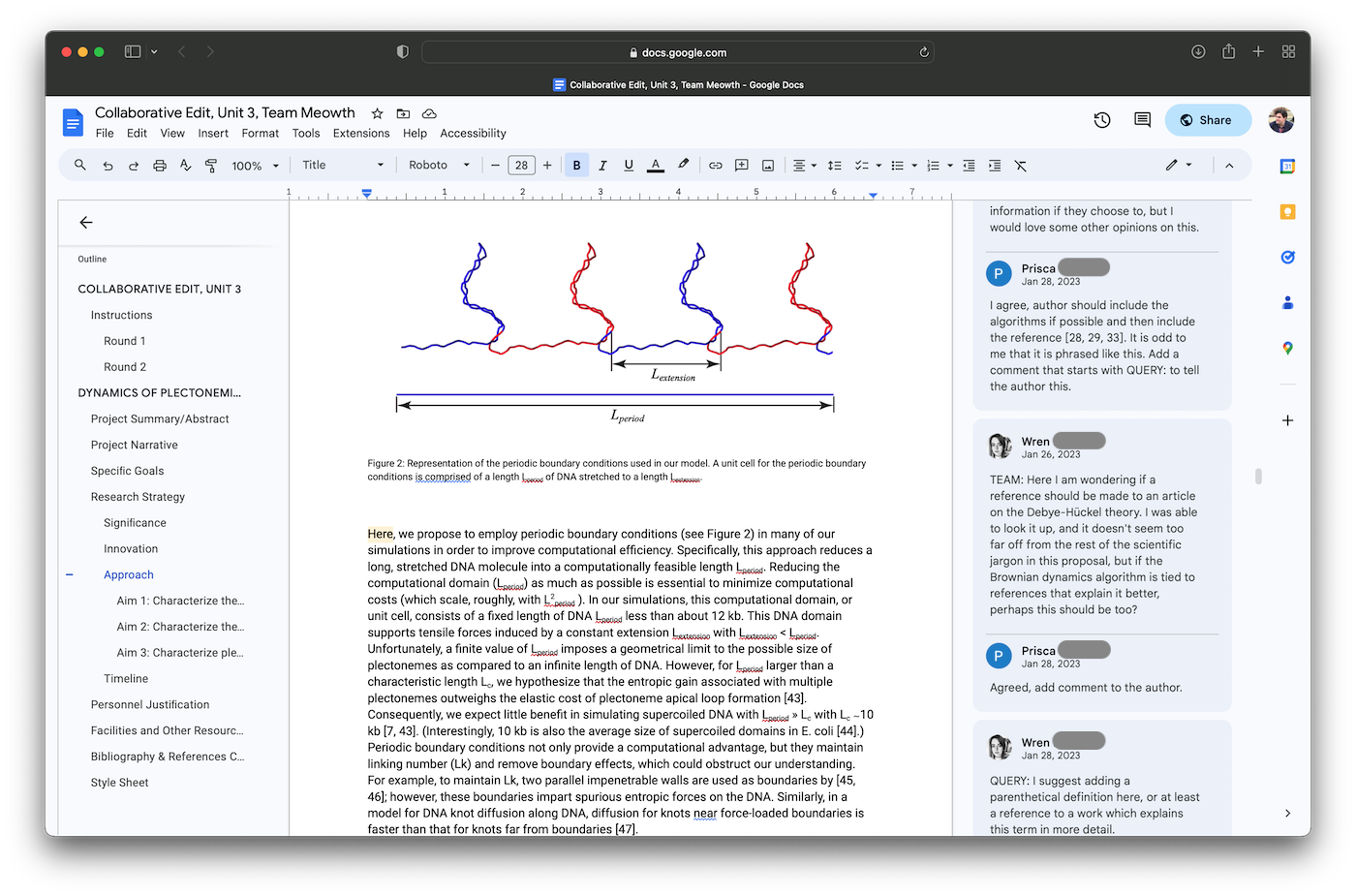
Students working together to edit an NIH research grant
In addition to Google Docs' commenting and chatting features, students use a shared Slack workspace to communicate in their teams and as a class.
In my Spring 2022 Special Topics in Writing and Rhetoric course, entitled "Helping Clients Produce Better Web Writing," students collectively took on the university's Office of Strategic Alliances as a client for whom they could provide usability and content strategy services.
Early in the semester students prepared for and then met with the client, gathering information about who the client's audience was, what message they needed to convey, and how they intended their digital presence on park.edu and social media to function. Students then engaged in a detailed analysis of the client’s digital presence and composed a detailed report making suggestions for how the client could improve their presence using web-writing and content strategy principles. Their report was transmitted to the client, who offered thanks and feedback to the students.
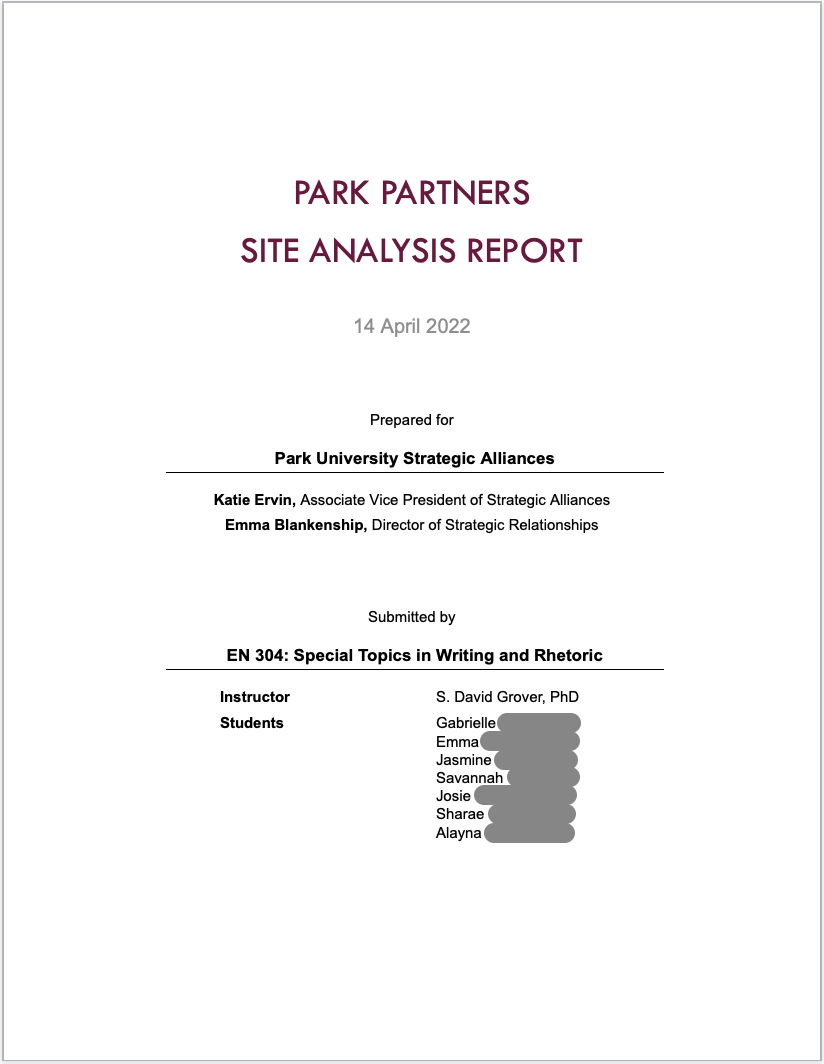
Cover page of the final report
In EN204: Writing for Online Environments, students' semester-long project is to write a feature article for a real-world media outlet. Students begin by brainstorming ideas for their feature and analyzing the style of potential target sites. They develop their ideas for several weeks before writing a pitch to me, posing as their target site's editor.
I respond to their query email with a letter accepting their proposal and setting the terms of the agreement, replicating the way a freelancer and editor would hammer out an agreement in the real world.
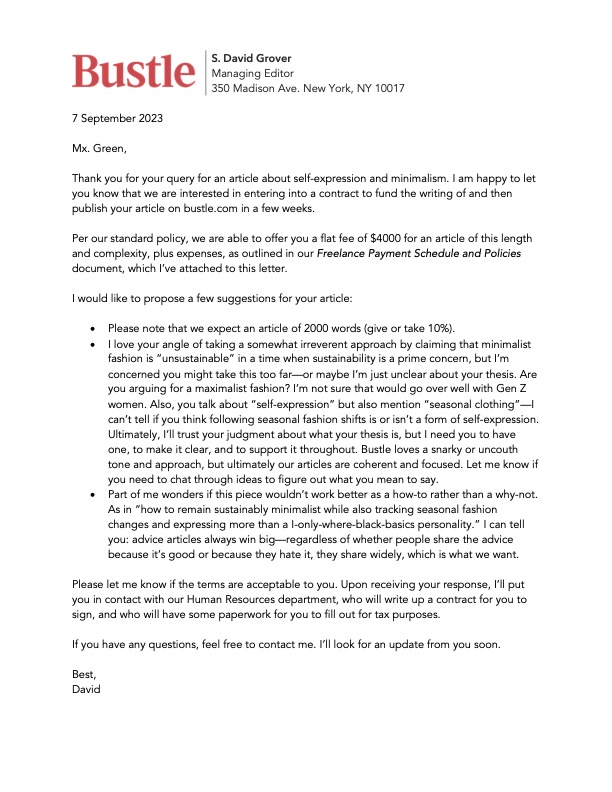
A realistic query acceptance gets students excited about writing.
Students then begin the writing process in earnest, checking in with their "editor" several times to get feedback and advice. The final drafts — each a piece of long-form nonfiction writing that accommodates a specific outlet's style and editorial guidelines and that makes use of webtext functionality to elevate itself beyond what a simple print text can do — represent a dynamic amalgam of student learning in the class.
It's no surprise to me that students often indicate that their feature is one of the pieces of writing they are most proud of.
The final project in EN207: Professional and Technical Editing is a three-phase editing project drawn from my real work as a freelance technical editor. Several years ago I worked with a tabletop game startup company, Guardian Moon Games, to edit instructions and other game materials for Destination Danger, a game they successfully Kickstarted and produced.
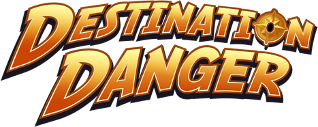
I obtained permission from the authors to use slightly altered versions of early drafts of the game for this project.
- Phase 1 asks students to copyedit the instructions for Deadline: Apocalypse
- Phase 2 asks students to substantively edit an early draft of a Kickstarter campaign for the game
- Phase 3 asks students to proofread the game cards before they get typeset and printed
At each phase, students are contacted by a different employee at "Power Sun Games," to whom they submit a transmittal email summarizing the work they did along with the finished products.
The realistic nature of the interconnected phases always excites and engages students, and they often do their best work of the semester, even though they don't yet know the project is based on real artifacts.
Once the work has been submitted and graded, however, I post a follow-up announcement to students that reveals the origins of the project and shows them the final, published versions of the documents they worked on. Students can examine the successful Kickstarter campaign page for themselves and compare the suggestions they made to the way things really turned out, and they can see how relatively clunky Word doc versions of game cards became beautifully designed real-world artifacts.
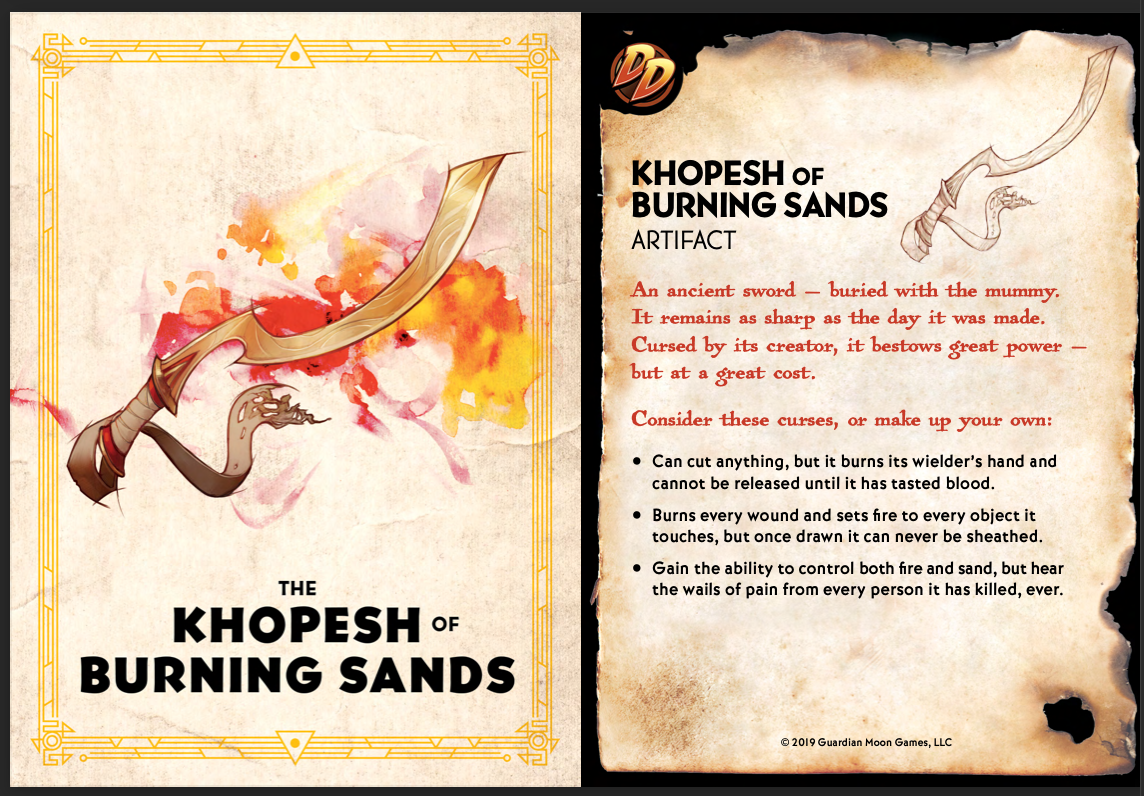
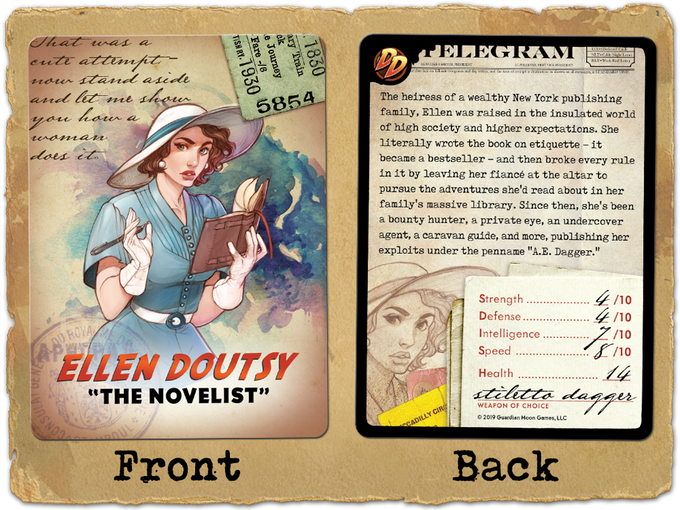
Actual finished cards from Destination Danger
Outside the Classroom
Of course, my duties as a teacher do not end at the classroom's door or when the semester ends. Being a teacher is my calling, and it permeates my life. Here are some examples of how I continue my work outside of the classroom.
Click any of the following to learn more.
One of my major projects of the past few years has been the development of an open-educational resource (OER) site where I and others can share instructional content for students. The site, called Grover's English, currently has over 30 articles and videos covering a variety of topics.
As the site declares:
The aim of Grover's English is not to merely duplicate (at no cost to users) what textbooks cover. Instead, the aim is to provide high-quality articles that supplement the more comprehensive content a writing textbook typically includes. The articles are meant to be short, freely available, standalone pieces that can easily be used by teachers in a variety of courses or even just by curious students.
Think “a textbook but in blog form.” Think, “an OER but fully modular and well designed.” Think “a modern website minus all attempts to garner clicks and page views.”
I am currently in the process of setting up an editorial system whereby submissions from academic writers can be accepted and published, the site's content can be validated by scholarly peer review process, and student editors can edit and proofread articles for clarity and correctness. (I already piloted some of that system using interns funded by a grant — see "Internships" below.)
When I came to Park, the English program had just launched the Professional and Technical Writing minor, which requires students to complete EN384, an internship class.
We hit a couple of snags: One, there wasn't a structure in place to help students find internships. Two, EN384 hadn't been updated in a long time, and the course was in disrepair. Three, we discovered that many of the students interested in the minor were non-traditional and distance students — many with families and full-time jobs, which makes completing a standard internship (3 months or more, full-time, in-person) a tricky proposition. Add to that the pandemic, and we were in danger of not being able to get the PTW minor off the ground.
I worked hard to solve these problems.
- I wrote and published an explainer on internships and how to get them.
- I worked with a colleague to update and improve our internship class so that students would have a useful supplement to their experience and so that instructors would be able to teach from a consistent, effective course shell.
- I helped several students find internship opportunities that worked around their life circumstances.
- When it became clear that more internship opportunities were needed, I applied for a received a $4000 grant that allowed me to hire and pay two editorial interns to work on Grover's English for a semester.
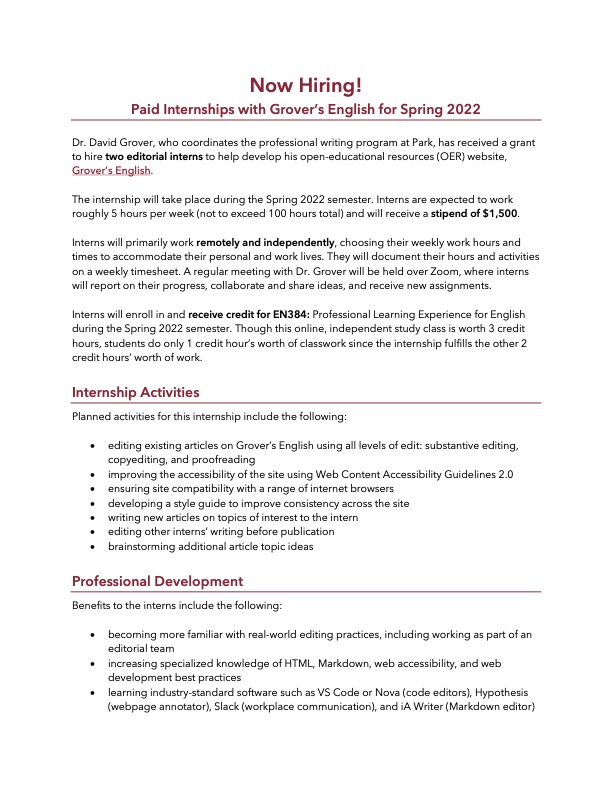
The flyer used to advertised the grant-funded internship
I believe that mentoring is one of the most important aspects of a professor's work as well as one of the greatest joys. I myself was mentored at key stages of my education, which led me first to a study abroad in London, then to completing an honor's thesis, and finally on to graduate school and my present career.

As a study abroad student, I was able to see scholars' lives up close as we lived and traveled together. At the end of the trip, I gave an impromptu lecture (in an impromptu toga) about Robin Hood: Prince of Thieves. Little did I know it would be the first lecture of an actual career in academia.
A big part of my mentoring today is focused on helping students from all majors see themselves as college students who can be successful. At the universities at which I've taught, so many of my students have not been traditionally "college ready" — and even those who are don't always see themselves as such. They struggle with confidence and courage, time management and self-regulation (just as I did as a student), so I do not hesitate to share with them stories of my own failings: of dropping out of college the first go-round, of earning my bachelor's a full eight years after graduating high school, of being more scared of writing than any other type of assignment or test, even to this day.
The following is from an email a student sent me a few months after taking my class:
Thank you also for not only being my professor, but a friend as well. It was pretty lonely for me last semester with being a new transfer student, but whenever I came to your office hours you always greeted me with a warm welcome which made me that much more motivated to try my best (and talking about World of Warcraft was pretty awesome too).
I'm proud to say that I'm finishing another semester on the President's List, and the enthusiasm and motivation you exuded in our class last semester was and still is the fuel for that. I've had many great professors here so far, but you still are the best!
In 2018, I worked with colleagues in history and English to lead a field trip for students interested in book history. This cross-disciplinary collaboration included stops at the Joseph Smith Papers in Salt Lake City (a major documentary editing and archival project), the Crandall Historical Printing Museum in Provo, and the Special Collections at Brigham Young University. We also attended a lecture by history scholar Janiece Johnson.
The students loved getting to see legacy print production techniques and artifacts up close, and many reported that it was useful and interesting to meet scholars engaged in English- and history-related academic work but who don't hold traditional professorial positions.
Student Feedback
The following quotations are excerpts from the reflections I typically have students write at the end of each course (and a few unsolicited emails). What I like about them is that they show students drawing their own conclusions. Very few of the points made are merely parroting something from class or a reading; these students are reflecting on their experiences and theorizing about what it might mean, which is exactly what I hope they get out of my classes.
Of course, not all reflections are as glowing as these — please don't get the idea that I'm always successful. Still, I would call the tenor of these responses typical of what I generally receive. (Students' words have been lightly edited for clarity.)
All of my life I heard my peers speak of teachers that really influenced their school year, their semester, their life, etc. I never had a teacher who really stuck out to me.
I wanted to email you because I do think it’s rather important to let people know that they are special and that what they do matter, that who they are is impacting others. You changed a lot for me. I felt the very manner in which I think about things change in the few short weeks of Spring semester. I never had a teacher who genuinely cared about our learning and not just the grade we received from doing an assignment.
Your class has made me a better student all around, which wasn't something I could really measure until now. I'm not really sure how to put into words what you did for my academic toolbox and real-life toolbox (if that's a thing...I think it should be), but I think it's enough to say that I remember the class fondly, I talk to peers about your class and teaching style when registration rolls around, and I can now say I have had a teacher who really positively improved some part of my life.
My favorite part of this class, in particular, was the community I felt within it. One student, Eduardo, and I got along right from the beginning and we began an open communication about different papers and assignments. His motivation to learn and grow has inspired me to be more proactive when seeking for help on a particular assignment. He did this by reaching out to me specifically for questions and misunderstandings.
At first, I wondered, “why is he asking me about this? When did I become an authority on writing?” Now I realize it had little to do with my knowledge and more to do with the relationship that we had cultivated in and out of class. I hope that I can carry that torch to other classes and be better about knowing my classmates and professors to the point where I am comfortable enough to ask questions that might seem insignificant or stupid to me.
(Eduardo was an international student from Chile.)
I also have thinking about how cool it was to have a “no-judgment zone” in class, and how everyone felt it was for reals. I learned a lot more because of that. Normally it is hard for me to speak in public because I might make mistakes if I get nervous.
Like in a project presentation in another class I said “sucsex” instead of “success” and everyone laughed. I wasn’t afraid of anyone in our class mocking me, even though I know that many times it was difficult for them to understand what I was trying to say. I think I can try to carry that culture to other classes. Helping each other and making more friends. Maybe inviting people over for breakfast at the beginning of every semester.
One thing that has particularly changed is the way I think. I was pretty bitter about this class at the beginning of the semester, but I grew to see what was really going on…. It was especially as we were finishing paper 2 that I realized that this class was changing my perspective of the world.
Last week, for example. I was talking to my brother on the phone, and he started ranting to me about some opinion he had. I asked him some questions that I had heard in this class that really got him to think deeper about the situation. I asked him, “How do you know that is true? Have you heard the story from both sides?” And other thought provoking questions. It was weird. I felt like such a nerd.
I have never seen the value in rhetoric before. I have subconsciously assumed that people have their own opinions and I’m not going to change their minds, so why try? Generally, when I declare an opinion of mine, it is to find out who is on my side rather than to attempt to get anyone to switch sides. I believe that everyone is entitled to their opinions, but in the past I have extended that to mean, “who am I to try to change their minds?”
Moving forward, I will pay more attention to what I care about, then actually exert effort to do the research necessary to form my own solid opinion on the issue. That way, I can feel like I actually have something say, like I can actually do someone a service by converting them to my point of view. I will need to be able to do this if I am going to win over and then keep clients as an architect. I’ll need to know how to convince my teenage kids to stay on the right path.
Rhetoric is a necessary skill to the survival of civilization as we know it, and fewer and fewer people are mastering it. Too many think like I did, in terms of agreeing to disagree before even attempting to convert each other. No wonder the world is so messed up. We all live in bubbles. I’m going to pop some bubbles.
This semester has been an incredible learning experience and rereading my pre-semester reflection showed me that very clearly. At the beginning of the semester I was plagued by fear of a bad grade.
I started to feel comfortable taking risks and took a big one by procrastinating my first paper to try a new writing process. I continued to take risks, especially in this class, and they started to pay off. I developed a new strength to add to my academic toolbox — creativity. Which I also consider to be very similar to critical thinking. I started to think outside the box with my assignments and projects and I did things differently than my professors had originally asked and they turned out great! I asked my art professor if I could do final in arbitrary color, and my communications professor if I could deliver a presentation without speaking but by drawing pictures….
I never would have had these ideas of the guts to do them without losing the fear of a bad grade and gaining a creative, critical thinking mind. My priorities have even changed! I’ve begun to value the integrity of my work over the quality and quantity. I want what I put out in the world to represent me and the message I’m trying to communicate, and I want it to be real and honest.
I loved how I was never graded on how if I was correct in the assignment, but my thinking behind it. I loved how I was given the freedom to choose to do the assignment. Although I abused that power a couple times, by not turning in a couple assignments, when I did complete an assignment, I felt I did it because I wanted to and not because I was told. Being graded on my willingness to do the assignment instead of what was actually produced challenged me and allowed me to feel accomplished in my work when I know I tried my best.
Before this class, I never really thought of myself as a critical thinker. As I have gone through this class, I found myself thinking outside the box. I would like to further define the “box” as any of my previous opinions that were based off my parents’ opinions. I realized I relied on my parents’ opinions and not my own. Although I still have an opinion about things almost exactly the same as my parents, it is now because I have made that decision and not because it was what I was raised with.
Above I mentioned that I was a coward and that might be a strong word for it, but I realized that I am way too unsure of myself all the time. I was constantly scared to work in a group on any of the projects because I was scared I would look stupid and I couldn’t help them the way they were helping me. I was really wrong…. People like Cassie and Alyssa really wanted, maybe even needed, my help. But people like Bryan were also willing to help me.
I think that this taught me that all people have something to offer each other. I still don’t’ think I’m the most confident in my work, but I think that I’m okay with that weakness as long as I can pair it with the ability to collaborate with others.
